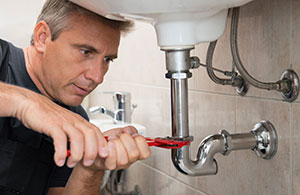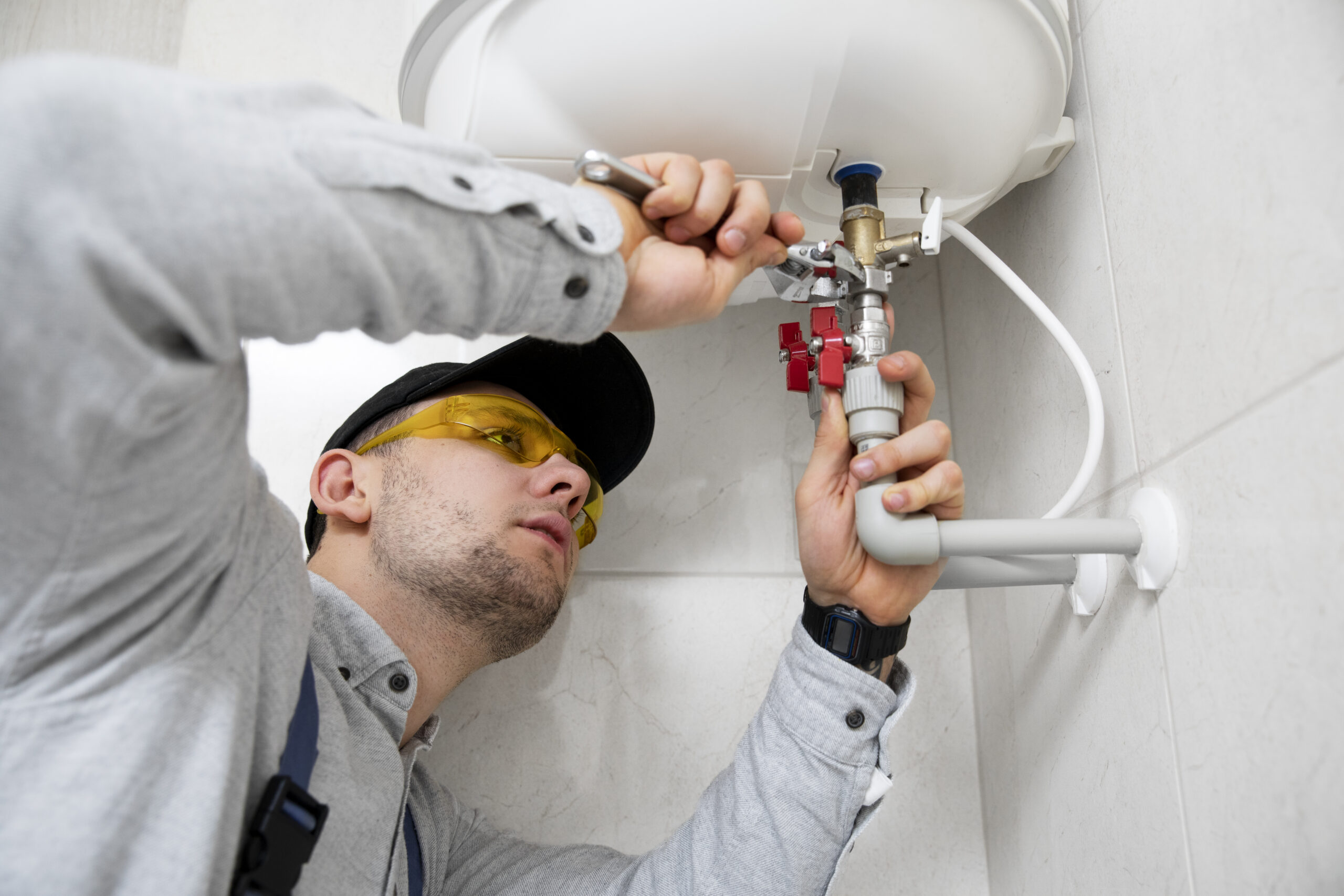This great article down below on the subject of Plumbing Emergencies: Tips on What To Do Before is quite informative. You should see for yourself.

Pipes emergencies can strike any time, triggering stress and anxiety and prospective damages to your home. Whether it's a burst pipeline, a clogged drain, or a leaking tap, knowing exactly how to take care of the situation up until a specialist plumbing professional gets here can save you from additional complications. This post gives essential emergency plumbing ideas to aid you mitigate damage and restore control during a plumbing situation.
Turn Off the Supply Of Water
The primary step in any kind of pipes emergency is to shut off the supply of water. For local concerns, such as a dripping tap or toilet, shut off the shutoff near the fixture. When it comes to a significant leakage or burst pipe, find your home's major water shut-off valve and turn it off right away. Understanding the area of these valves in advance can conserve important time throughout an emergency.
Shut Off Your Water Heater
In certain emergencies, such as a ruptured pipeline, it's wise to shut off your water heater. This prevents overheating or damage to the system when water quits streaming. Shut off the power supply to the water heater (electric or gas) and let it cool to stay clear of prospective risks.
Temporarily Stop a Burst Pipe
A ruptured pipeline can result in significant water damages in minutes. To reduce the issue:
Call a professional plumbing technician quickly to attend to the problem completely.
Have an Emergency Plumbing Kit
Prepare a standard pipes emergency set to take care of minor problems properly. Your package should include:
Having these devices on hand can make a considerable distinction in your capacity to take care of emergencies.
Unclog Drains Safely.
A clogged up drain can be an irritating and untidy problem. Below's how to tackle it:.
If these techniques don't function, prevent utilizing extreme force, as it may intensify the blockage.
Take Care Of Overflowing Toilets.
An overruning bathroom can trigger instant mayhem. Here's what you ought to do:.
Address Little Leaks with Temporary Repairs.
Little leaks can swiftly become significant troubles if left untreated. Use these short-lived solutions up until specialist assistance arrives:.
While these fixes aren't long-term, they can assist minimize water loss and damages.
Manage Frozen Water Lines Meticulously.
In colder environments, icy pipelines are an usual emergency. If you suspect an icy pipeline:.
Know When to Call an Expert.
While quick fixes can aid briefly, particular pipes issues need immediate specialist attention. Call a plumber if:.
Promptly calling a professional makes sure the issue is solved correctly and stops more complications.
Stop More Damage.
Taking quick activity to minimize damages can conserve you time and money in the future. Right here's just how:.
Verdict.
Plumbing emergencies can be frustrating, but with the best expertise and devices, you can manage the circumstance properly until assistance gets here. By turning off the water supply, dealing with little leakages, and using short-term repairs, you can decrease damage and keep your home safe. Keep in mind, these pointers are temporary services; constantly get in touch with a qualified plumbing to manage the origin of the trouble. Prep work and quick thinking are your finest allies in any type of pipes emergency situation.
How to Manage a Plumbing Emergency Until Help Arrives
Plumbing emergencies can be stressful, but keeping calm can help minimize damage to your home. Below are steps to handle a plumbing emergency, but always call a plumber for assistance. It’s safest to have a 24/7 emergency plumbing team readily available, so keep their number in your contacts list for easy access.
Shut off the water: Act quickly to turn off the water source during an emergency. For toilets, turn the water valve at the base or behind the commode. For larger emergencies or flooding, turn the main valve in your home clockwise. Turn off the water heater: Prevent damage to your water heater by switching it off after shutting off the main valve. If you have a gas water heater, turn off the gas supply first. Must Open drains and spigots: Even after shutting off the main valve, your pipes may still have water. Reduce potential damage by turning on spigots outside your home and clearing water with the garden hose. Avoid using chemical cleaners during an emergency. Address small leaks: If you find a small leak, use the plumber’s tape or place rags and towels around the pipes to prevent further damage. Inform the plumbers about these leaks upon their arrival. Call for help: Remember to call a plumber as soon as the emergency occurs. An early call can provide initial assistance and help determine if the situation is too dangerous. If professionals or government officials advise you to leave your home during an emergency, listen and prioritize your safety. Plumbing Emergency Examples and Immediate Fixes
Dealing with a plumbing emergency can put enormous stress on homeowners, leaving them uncertain about the steps to take. This detailed guide delivers concise, direct advice for swiftly tackling typical plumbing dilemmas. It includes actionable measures for dealing with everything from burst pipes to toilets that won’t overflow, helping reduce harm and quickly bring back normalcy.
Burst Pipes
Burst pipes result from intense pressure from various causes like freezing temperatures, corrosion, or physical damage that leads to a pipe rupturing.
Solutions:
Immediately shut off the main water supply to halt the flow of water. Drain the remaining water in the system by opening all cold water taps to prevent further damage. For a temporary fix, use a pipe repair clamp or wrap a piece of rubber around the burst section and clamp it tightly with hose clamps. Call a plumber for a permanent fix. Severe Leaks in Faucets or Toilets
Solutions
Locate and close the local shut-off valve to stop the water flow to the leaking fixture. Place a bucket underneath to catch any drips and reduce damage. In the case of a toilet, lift the float in the tank to prevent more water from entering the bowl and turn off the water supply valve. Contact a plumber to address the problem correctly. Leaking Water Heater
Turn off the water supply to the leaking water heater. If it’s electric, switch off the power at the circuit breaker; if it’s gas-powered, turn off the gas valve. Avoid attempting to repair yourself, as this may involve significant danger and complexity. Seek the assistance of a professional plumber who can provide a safe and appropriate resolution. https://www.showtimeplumbingllc.co/expert-tips-for-managing-a-plumbing-emergency-until-help-arrives

I am very eager about What to Do While Waiting for an Emergency Plumber and I really hope you liked the entire entry. If you please take a moment to promote this article if you appreciated it. Thanks so much for taking the time to read it.
Book